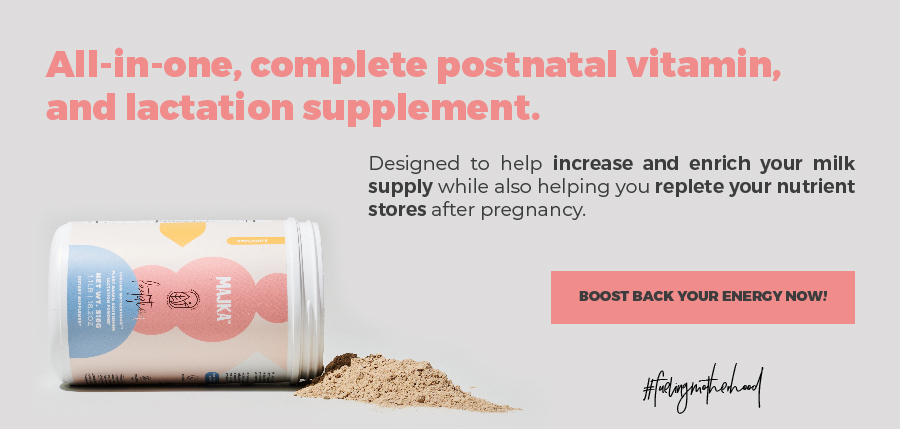
When you have a baby, you may be paying a lot of attention to the details, wanting to make sure that everything is working out in the best way possible and that you feel comfortable taking care of your baby.
We all have hiccups, but is very common that baby´s have them more frequently than adults which could let you to have doubts as if this is normal or not; in this article we want to tell you all about baby’s hiccups so you can have all the information needed to feel confident while taking good care of your baby.
What’s a hiccup?
A hiccup is what happens when your baby’s diaphragm – the muscle at the base of the lungs- gets irritated from swallowing or from irregular breathing (this are common but not exclusive reasons); the diaphragm then, starts to spasm or cramp which causes the vocal cords to close rapidly and make a ¨hic!¨ sound.
When do hiccups start?
You may have noticed that your baby’s hiccups started in your womb!. Some moms start feeling them during the second half of their pregnancy and studies have confirmed the presence of fetal hiccups.
They are often described as jerky movements with a more or less regular pattern that tends to occur.
What causes my baby to have hiccups?
As mentioned before, hiccups are a natural and normal process that every single person experiences, and it is very common that your baby has lots. Even so, is it true there are other reasons that cause hiccups in a baby.
- Gastroesophageal reflux, for example, could be a main one: sometimes hiccups are a sight of this reflux, which causes the stomach acid to back up into a baby’s esophagus. What is important to know here is that hiccups aren’t the only symptom of this reflux, other symptoms are: coughing, spitting up, irritability and crying, and arching the back during or after feeding. If you are noticing these symptoms, let your healthcare provider know and get the help needed to manage it and to get your baby back on its feet.
- Intaking air of the breast from a possible shallow or inefficient latch, can cause hiccups as well. Often, frequent hiccups are associated with latch concerns and/or oral tension, if you believe that this could be happening, reach your lactation consultant to get proper guidance in this matter.
What should I do about my baby’s hiccups?
Occasional hiccups are normal and there isn’t a need to stop them, they usually are a bigger bother to adults than to your baby, and they stop on their own; but if you feel more comfortable helping your baby to avoid them, here are some alternatives that you can do:
- Try a more upright position while feeding, so he/she can have more control of the flow so less air comes in while feeding.
- Frequent burping helps to have less hiccups, you can help your baby to burp between breasts or halfway between a bottle feed to prevent hiccups from striking; although do this when there is suspicion of air intake of if your baby seems gassy or uncomfortable, otherwise frequent burping could interrupt the feeding session.
- Using a pacifier can help to relax the diaphragm through the sucking motion.
- Slow down while feeding, your baby may be eating a little too fast or a little too much, which causes the belly to get distended and touches the diaphragm; also, a lot of air may be coming in while taking a bottle or breastfeeding. When your baby stops feeding and relaxes, he/her may stop hiccupping.
To avoid hiccups while feeding:
- When breastfeeding, make sure that your baby is efficiently latched to your breast.
- When bottle feeding expressed breastmilk or formula, make sure the bottle is full of milk and there isn’t any air in the nipple.
To avoid hiccups after feeding:
Don´t let your baby lay down right away, keep her/him up for 15 or 20 minutes: this will get a better digestion and also rubbing your baby’s back while keeping him/her up can help alleviate hiccups.
*You can always call your lactation consultant to feel as comfortable as possible with the process of feeding your baby.
What not to do if my baby has hiccups?
Hiccups are reflexes, just like sneezing and blinking, and we have mentioned some alternatives to make them less frequent, but they are always going to be a part of a person’s life.
Even so, we as adults tend to use some home remedies that sometimes help us to get rid of them temporarily such as drinking a lot of water quickly, holding our breath, breathing into a paper bag, asking someone else to scare us, etc. But remember that your baby’s body is sensitive and still developing so do not use any of these tactics that could be dangerous for his/her health.
When should I call the doctor?
As we have mentioned in this article, the fact that your baby has hiccups is a normal and natural thing that doesn’t cause any physical damage. However, frequent hiccups could be a sign of latching difficulties that should be addressed with a lactation consultant.
If your baby’s hiccups are persisting for more than 10 minutes or especially if they come with other signs such as coughing, spitting up or anything else that concerns you; then call your pediatrician to make sure that everything is working out well and to get a proper treatment if it isn´t.
In Breastfeeding 101 we are happy to help you with all the information you need to know your baby’s health, we invite you to follow all our content to keep in touch with this information.
We also want to share with you some of the sources that make this article possible in case you want to deepen even more on this matter:
Child hiccups are seldom cause for alarm I OSF HealthCare
Hiccup: Mystery, Nature and Treatment I Natural Library of Medicine
Fetal hiccups; characteristics and relation to fetal heart rate I ScienceDirect
Here’s What to Do When Your Baby Has the Hiccups I healthessentials
How to get rid of hiccups I Medical News Today
How to stop hiccups in newborns I MedicalNewsToday
Newborn baby hiccups could be key to brain development I USL News
Newborn Behavior I Cleveland Clinic
Newborn Hiccups: Causes, Remedies And More I Forbes Health
Annie Rueb






